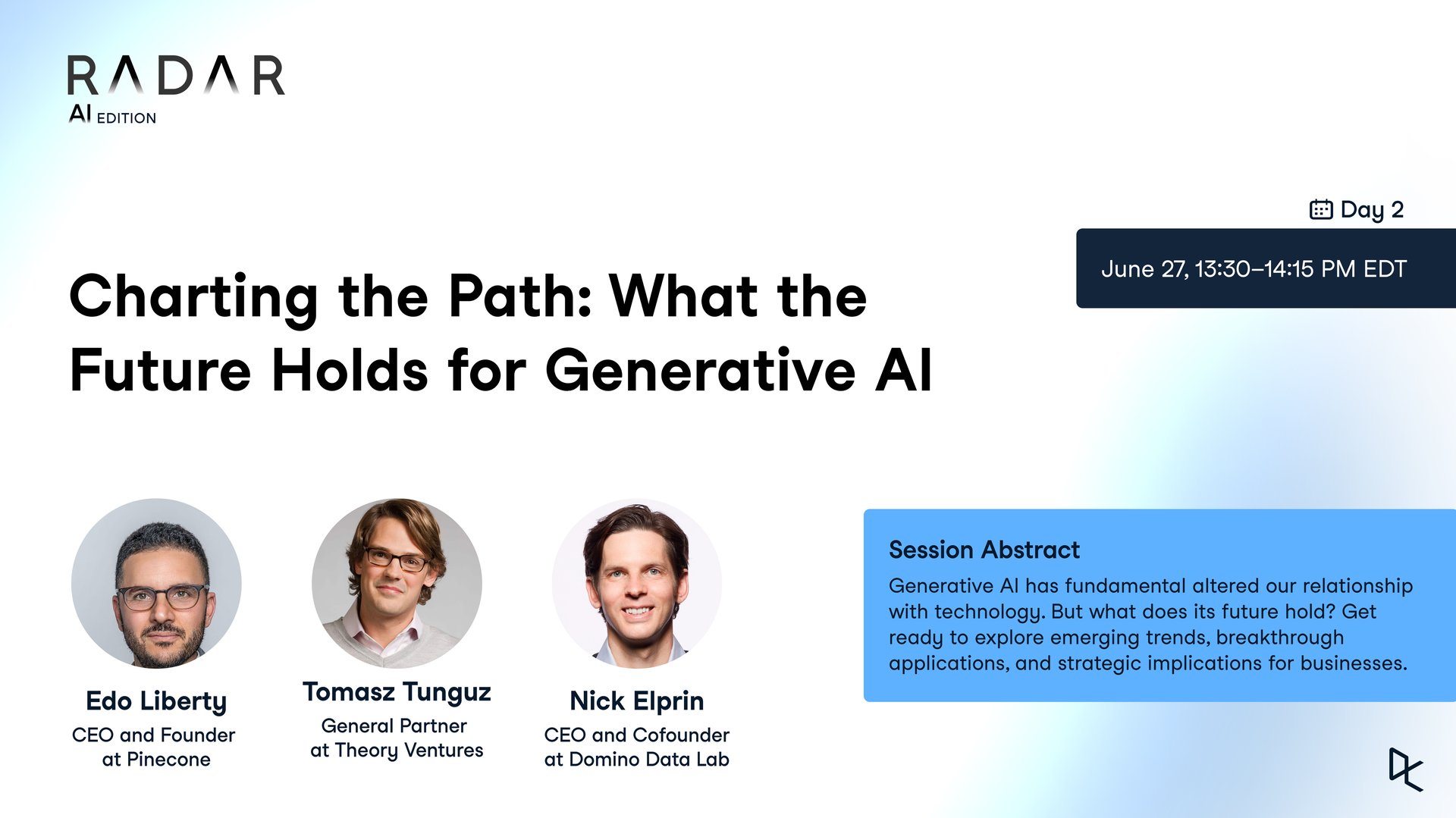Pular para o conteúdo principalSaiba Mais





Falantes
Treinar 2 ou mais pessoas?
Obtenha acesso à biblioteca completa do DataCamp, com relatórios, atribuições, projetos e muito mais centralizadosRelacionado
webinar
Generative AI: Trends, Impact, and Practical Applications for 2024
Deep dive into significant trends and developments within Generative AI as we near the middle of 2024.webinar
Demystifying AI: Unpacking the Generative AI Landscape
Join experts from leading venture capital firms to discover the latest business and data science use cases of generative AI.webinar
Generative AI in Practice: 100+ Amazing Ways Generative AI is Changing Business & Society
World-renowned author & futurist Bernard Marr, will outline how Generative AI is being used in practice today.webinar
Revolutionizing Learning: Exploring the Future of Upskilling with AI
Join us as the panel of AI and education experts discuss how to work with generative AI to upskill employees and improve corporate training programs.webinar
Laying the Foundations: Scoping Generative AI Use Cases from Vision to Business Impact
In this session, Albert Esplugas provides a comprehensive overview of the top generative AI use cases across business areas and industries.webinar
Radar Data & AI Literacy Edition: Laying the Foundations: Scoping Generative AI Use Cases from Vision to Business Impact
In this session, Albert Esplugas provides a comprehensive overview of the top generative AI use cases across business areas and industries.Join 5000+ companies and 80% of the Fortune 1000 who use DataCamp to upskill their teams.
Loved by thousands of companies



